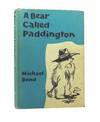
Utopia: or the Happy Republic;: A Philosophical Romance, In Two Books. Book I. Containing Preliminary Discourses on the happiest State of a Commonwealth. Book II. Containing a Description of the Island of Utopia, The Towns, Magistrates, Mechanick Trades, and Manner of Life of the Utopia
by MORE, Sir Thomas
- Used
- Condition
- See description
- Seller
-
London, United Kingdom
Payment Methods Accepted
About This Item
Synopsis
Sir Thomas More, son of Sir John More, a justice of the King's Bench, was born in 1478, in Milk Street, in the city of London. After his earlier education at St. Anthony's School, in Threadneedle Street, he was placed, as a boy, in the household of Cardinal John Morton, Archbishop of Canterbury and Lord Chancellor. It was not unusual for persons of wealth or influence and sons of good families to be so established together in a relation of patron and client.
Reviews
Utopia was a beautiful concept of a life that revolved around peace and a society without violence. It would be a type of redirection in the way, we bring up our young from infancy. More who at one time was King Henry VIII's very close friend, fell from his grace by not swearing the vow that recognized Henry as the Head of the Church of England (which consequently excommunicated England from Rome) and also did not agree with the divorce/annulment from Catherine of Aragon so he could marry Anne Boleyn & name her queen (all this was included in the vow). He explained to Henry that he'd always love him as a friend, and never speak against him publicly, but as a Catholic, even if he said the words but kept the truth in his heart it would still be a lie. Out of pride and anger that Henry could not bend him to his will he finally had More beheaded. This book was a fantasy world to Henry, one he referred to as a joke. He believed in making a spectacle of wrong doers while Thomas had a more peaceful idea. There are many who still feel a Utopian (which means paradise) society could be had including myself. It would take hundreds of years more work now though than it would have then. And even if we got close, it would never be completely Utopian, human nature wouldn't allow it. But enjoying it 75% of the time would truly be a wonderful world.
(Log in or Create an Account first!)
Details
- Bookseller
- Peter Harrington
(GB)
- Bookseller's Inventory #
- 164718
- Title
- Utopia: or the Happy Republic;
- Author
- MORE, Sir Thomas
- Book Condition
- Used
- Place of Publication
- Glasgow: printed by Robert Foulis, and sold by him there; and, at Edinburgh, by Mess. Hamilton and Balfour Booksellers,
- Date Published
- 1743
Terms of Sale
Peter Harrington
All major credit cards are accepted. Both UK pounds and US dollars (exchange rate to be agreed) accepted. Books may be returned within 14 days of receipt for any reason, please notify first of returned goods.
About the Seller
Peter Harrington
About Peter Harrington
Glossary
Some terminology that may be used in this description includes:
- Bookplate
- Highly sought after by some collectors, a book plate is an inscribed or decorative device that identifies the owner, or former...
- Gilt
- The decorative application of gold or gold coloring to a portion of a book on the spine, edges of the text block, or an inlay in...
- New
- A new book is a book previously not circulated to a buyer. Although a new book is typically free of any faults or defects, "new"...
- Morocco
- Morocco is a style of leather book binding that is usually made with goatskin, as it is durable and easy to dye. (see also...
- Octavo
- Another of the terms referring to page or book size, octavo refers to a standard printer's sheet folded four times, producing...
- Rubbing
- Abrasion or wear to the surface. Usually used in reference to a book's boards or dust-jacket.




